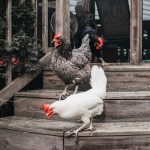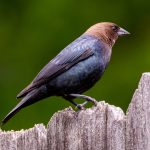Raccoons and possums are nocturnal animals that are most active during nighttime hours. Both species are opportunistic feeders, consuming a wide variety of food sources. Raccoons possess dexterous front paws, which they use to manipulate objects and open containers.
They are also skilled climbers, capable of scaling fences and trees to access chicken coops. While possums are less agile than raccoons, they can still climb and squeeze through small openings. These animals are attracted to chicken coops as potential food sources, targeting chickens, eggs, and feed.
Raccoons and possums are known for their persistence and intelligence. Once they discover a food source, they will repeatedly return to it, making deterrence challenging. Both species can be territorial, potentially establishing a long-term presence in an area.
Understanding the behavior of these animals is crucial for developing effective strategies to protect chicken coops. The nocturnal nature, opportunistic feeding habits, climbing abilities, and persistence of raccoons and possums make them significant threats to chicken coops. Their intelligence and adaptability further complicate efforts to keep them away from chickens and their habitats.
Developing effective protection measures requires a thorough understanding of these animals’ behaviors and characteristics.
Table of Contents
- 1 Securing the Chicken Coop
- 2 Installing Motion-Activated Lights and Alarms
- 3 Using Natural Deterrents
- 4 Removing Potential Food Sources
- 5 Regularly Inspecting the Perimeter
- 6 Seeking Professional Help if Necessary
- 7 FAQs
- 7.1 What are some effective ways to keep raccoons and possums away from my chickens?
- 7.2 What are some natural deterrents for raccoons and possums?
- 7.3 Are there any commercial products available to keep raccoons and possums away from chickens?
- 7.4 What should I do if I encounter a raccoon or possum near my chicken coop?
Key Takeaways
- Raccoons and possums are nocturnal animals that are attracted to chicken coops due to the availability of food and shelter.
- Securing the chicken coop with sturdy materials and locking mechanisms can help prevent raccoons and possums from gaining access.
- Installing motion-activated lights and alarms can startle and deter raccoons and possums from approaching the chicken coop.
- Natural deterrents such as predator urine, ammonia-soaked rags, and cayenne pepper can be effective in keeping raccoons and possums away.
- Removing potential food sources such as fallen fruits, garbage, and pet food can help discourage raccoons and possums from lingering around the chicken coop.
- Regularly inspecting the perimeter for any signs of entry or damage can help identify and address potential vulnerabilities.
- Seeking professional help from wildlife removal experts may be necessary if raccoons and possums continue to be a persistent problem despite preventive measures.
Securing the Chicken Coop
Inspecting the Coop
One of the most important steps in protecting your chickens from raccoons and possums is to secure the chicken coop. This means making sure that there are no openings or weak spots that these animals can exploit to gain access. Start by inspecting the coop for any holes or gaps in the walls, roof, or floor. Make sure that all windows and doors are securely closed and that there are no loose or rotting boards that could be easily broken into.
Securing Openings and Weak Spots
Consider installing hardware cloth or heavy-gauge wire mesh over any openings to prevent raccoons and possums from squeezing through. It’s also important to secure the chicken coop from below. Raccoons and possums are known for digging, so it’s important to bury wire mesh or hardware cloth around the perimeter of the coop to prevent them from digging underneath.
Additional Security Measures
Additionally, consider installing a predator-proof latch on the coop door to prevent raccoons from manipulating it open with their dexterous paws. By taking these steps to secure the chicken coop, you can greatly reduce the chances of raccoons and possums gaining access to your chickens.
Installing Motion-Activated Lights and Alarms

Another effective strategy for keeping raccoons and possums away from your chicken coop is to install motion-activated lights and alarms. These devices can startle and deter these nocturnal animals when they approach the coop at night. Motion-activated lights can be placed around the perimeter of the coop and will turn on when they detect movement, effectively illuminating the area and making it less appealing for raccoons and possums.
Similarly, motion-activated alarms can emit loud noises when triggered, scaring off any potential predators. In addition to deterring raccoons and possums, motion-activated lights and alarms can also alert you to any potential threats to your chickens. By installing these devices, you can be immediately notified if there is any activity around the coop during the night, allowing you to take action to protect your chickens.
Overall, motion-activated lights and alarms are an effective way to deter raccoons and possums while also providing added security for your chickens. Installing motion-activated lights and alarms around the chicken coop can effectively deter raccoons and possums from approaching. These devices startle the animals with sudden light or loud noises when they detect movement, making the area less appealing for them.
Additionally, these devices can also alert you to any potential threats to your chickens, allowing you to take immediate action to protect them. Overall, motion-activated lights and alarms provide an effective way to deter predators while also providing added security for your chickens.
Using Natural Deterrents
In addition to physical barriers and technological deterrents, natural deterrents can also be effective in keeping raccoons and possums away from your chicken coop. One natural deterrent is predator urine, which can be purchased from outdoor supply stores or online. The scent of predator urine can signal danger to raccoons and possums, causing them to avoid the area around your chicken coop.
Another natural deterrent is planting strong-smelling herbs or flowers around the coop, such as lavender or mint, which can help repel these animals. You can also consider using natural predators of raccoons and possums as a deterrent. For example, installing owl boxes or encouraging natural predators like owls or hawks to frequent your property can help keep raccoons and possums at bay.
Additionally, keeping a dog on your property can also deter these animals from approaching the chicken coop. By using natural deterrents in combination with other strategies, you can create a multi-faceted approach to keeping raccoons and possums away from your chickens. Natural deterrents such as predator urine and strong-smelling herbs can be effective in repelling raccoons and possums from your chicken coop.
The scent of predator urine signals danger to these animals, causing them to avoid the area. Planting herbs or flowers with strong scents around the coop can also help repel them. Additionally, encouraging natural predators like owls or hawks to frequent your property or keeping a dog on your property can also help deter raccoons and possums.
By using natural deterrents in combination with other strategies, you can create a multi-faceted approach to keeping these predators away from your chickens.
Removing Potential Food Sources
Raccoons and possums are attracted to chicken coops because they see them as a potential source of food. To deter these animals, it’s important to remove any potential food sources from around the coop. This includes securing garbage cans with tight-fitting lids, removing fallen fruit from trees, and keeping pet food indoors.
It’s also important to store chicken feed in secure containers that cannot be easily accessed by raccoons or possums. In addition to removing potential food sources, it’s also important to keep the area around the chicken coop clean and free of debris. Raccoons and possums are attracted to areas with ample hiding spots, so it’s important to keep the area around the coop well-maintained.
By removing potential food sources and keeping the area clean, you can make your property less appealing to raccoons and possums. Removing potential food sources from around the chicken coop is crucial in deterring raccoons and possums from approaching. This includes securing garbage cans, removing fallen fruit from trees, and storing pet food indoors.
Additionally, storing chicken feed in secure containers and keeping the area around the coop clean can make your property less appealing to these animals.
Regularly Inspecting the Perimeter

Inspecting the Perimeter
This includes checking for any new holes or gaps in fences or walls, as well as ensuring that all doors and windows are securely closed. It’s also important to inspect trees near the coop for any overhanging branches that could provide easy access for these animals.
Monitoring for Signs of Activity
In addition to inspecting the perimeter of your property, it’s also important to look for any signs of raccoon or possum activity around the chicken coop. This includes looking for tracks, droppings, or any damage to the coop or surrounding area.
Taking Proactive Measures
By regularly inspecting the perimeter of your property and looking for signs of activity, you can identify any potential issues early on and take action to address them before they become a problem. This proactive approach can help prevent raccoons and possums from gaining access to your chicken coop and reduce the risk of damage or harm to your chickens.
Seeking Professional Help if Necessary
If despite your best efforts, you find that raccoons and possums continue to be a problem for your chicken coop, it may be necessary to seek professional help. Wildlife removal experts have the knowledge and experience to effectively remove these animals from your property in a humane manner. They can also provide advice on how to prevent future infestations and make recommendations for securing your chicken coop.
In some cases, it may also be necessary to contact local animal control authorities if you are unable to effectively deal with a raccoon or possum infestation on your own. These authorities have the expertise and resources to safely remove these animals from your property while ensuring that they are not harmed in the process. If despite your best efforts, raccoons and possums continue to be a problem for your chicken coop, it may be necessary to seek professional help.
Wildlife removal experts have the knowledge and experience to effectively remove these animals from your property in a humane manner. They can also provide advice on how to prevent future infestations and make recommendations for securing your chicken coop. In some cases, it may also be necessary to contact local animal control authorities if you are unable to effectively deal with a raccoon or possum infestation on your own.
In conclusion, protecting your chickens from raccoons and possums requires a multi-faceted approach that includes understanding their behavior, securing the chicken coop, installing deterrents, removing potential food sources, regularly inspecting the perimeter, and seeking professional help if necessary. By taking these steps, you can effectively deter these predators while providing a safe environment for your chickens.
If you’re looking for ways to keep raccoons and possums away from your chickens, you may also be interested in learning about how to insulate a chicken coop to provide a safe and comfortable environment for your birds. Check out this article on how to insulate a chicken coop for tips and ideas on keeping your chickens warm and protected from predators.
FAQs
What are some effective ways to keep raccoons and possums away from my chickens?
Some effective ways to keep raccoons and possums away from your chickens include securing the chicken coop with strong locks, installing motion-activated lights or sprinklers, and using predator-proof fencing.
What are some natural deterrents for raccoons and possums?
Some natural deterrents for raccoons and possums include using strong-smelling substances like ammonia or predator urine around the chicken coop, as well as planting thorny bushes or using prickly plants to create a barrier.
Are there any commercial products available to keep raccoons and possums away from chickens?
Yes, there are commercial products available such as predator-proof chicken wire, automatic coop door closers, and ultrasonic animal repellents that can help keep raccoons and possums away from chickens.
What should I do if I encounter a raccoon or possum near my chicken coop?
If you encounter a raccoon or possum near your chicken coop, it’s important to stay calm and avoid approaching the animal. You can try making loud noises or using a flashlight to scare the animal away, but it’s best to contact a professional wildlife removal service for assistance.
Meet Walter, the feathered-friend fanatic of Florida! Nestled in the sunshine state, Walter struts through life with his feathered companions, clucking his way to happiness. With a coop that’s fancier than a five-star hotel, he’s the Don Juan of the chicken world. When he’s not teaching his hens to do the cha-cha, you’ll find him in a heated debate with his prized rooster, Sir Clucks-a-Lot. Walter’s poultry passion is no yolk; he’s the sunny-side-up guy you never knew you needed in your flock of friends!







